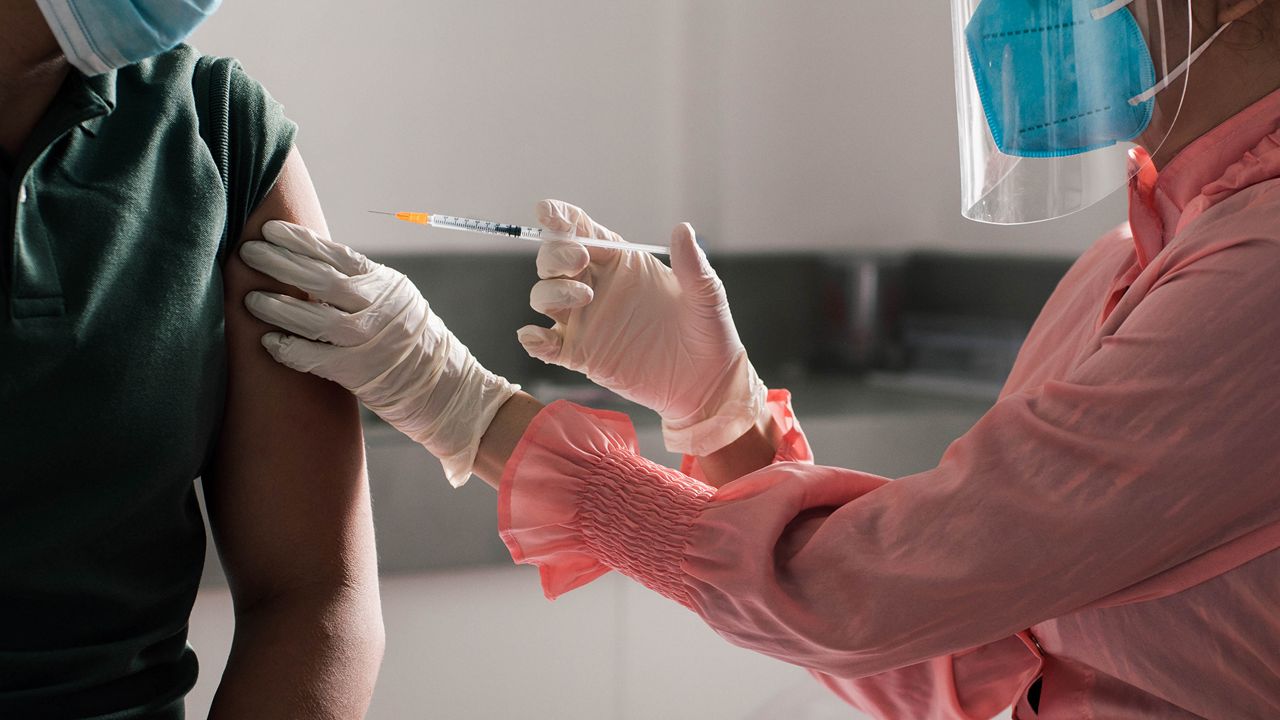COLUMBUS, Ohio — Health officials are urging immunocompromised people to make appointments for a fourth shot because they may not respond as well to the vaccine.
What You Need To Know
- A small category of people are eligible for fourth shots
- Dr. Fauci said officials are monitoring the eligibility criteria
- Only a few countries have approved fourth shots more broadly
Some moderately or severely immunocompromised who received a third mRNA COVID-19 vaccine are now eligible for the fourth shot.
Chris Cook, assistant health commissioner in Clark County, said people who are immunocompromised should talk to a health professional to see if they should get the fourth shot.
"I want to be really clear, I don't want everyone running out saying, 'Hey, we need to get a fourth dose,'" Cook said during a news conference. "This is for immunocompromised people only — again, if you've been told you're immunocompromised, or you know you have a condition that puts you in that realm."
Prior to new federal guidance that came out Friday, only those who received third shots in the first month after they were approved in the summer were eligible for fourth shots. In Ohio, that meant only about 0.4% of residents were eligible for fourth shots last week, but more people are now eligible following the latest change.
The Centers for Disease Control and Prevention shortened the waiting period for fourth shots from five months to three months, meaning that immunocompromised people who got third shots before Nov. 17 can now get fourth shots. Still, only about 3% of Ohioans are considered moderately or severely immunocompromised, and many of those people did not receive three doses earlier enough to be eligible.
Some health systems in Ohio, including Ohio State Wexner Medical Center, are sending messages to patients who are eligible for fourth shots, to help them navigate the changing guidance.
Cassidy Miller, 36, has common variable immune disorder and said she plans to get a fourth shot soon because an infectious disease doctor at Ohio State recommended it for her.
She said she had COVID-19 in January, so she is waiting until March to roll up her sleeve again.
Miller said getting the virus wasn't as bad as she thought it would be. She said she thinks her case wasn't severe because she got her booster in October and was able to take an oral antiviral medication to help her recover.
Miller has also tried to take a preventative medication approved for immunocompromised people, but she said she wasn't successful.
"I can't get Evusheld, because in Ohio if you produced any kind of antibody response to the COVID vaccine, you're not eligible," she said. "I did produce a low number which disqualified me."
With the Moderna vaccine, the fourth shot for immunocompromised people, which is considered the "booster," is a half-dose.
The fourth shots are available to immunocompromised people 12 and older.
Federal health officials will continue to evaluate data to determine if and when to possibly expand the eligibility for fourth shots to more Americans, White House Chief Medical Adviser Dr. Anthony Fauci said during a news conference Wednesday.
Fauci said that studies continue to demonstrate vaccine efficacy wanes over time, but he said officials believe that three shots is enough for now to provide high levels of protection against severe disease from the omicron variant.
"This should not be confused with the fact that for many immunocompromised people, already a second booster shot, namely, a fourth dose of an mRNA, is recommended because of what we know about their poor response to the initial regimen," he said.
Most countries have not approved fourth shots for broader categories of people, but there are a few exceptions, including Israel and Sweden, which have approved them for seniors.
Cuyahoga County Health Commissioner Terry Allan said Wednesday that county officials were monitoring discussion around new CDC data showing that booster shot efficacy wanes after four months. But he said health officials are much more concerned about those who haven’t gotten a first vaccine.
"Please stay up to date on your vaccinations as we know that boosters substantially raise your level of protection against hospitalization and fatalities, which has always been the name of the game," he said.



